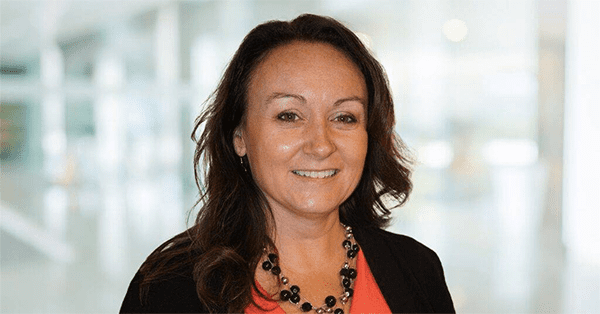- Solutions
- Solutions
- Home Health
- Hospice
- Life Plan Community
- Palliative Care
- Private Duty
- Senior Living
- Skilled Nursing
- Skilled Nursing
- Skilled Nursing Software
- Advanced Insights
- Customer relationship management
- Data and analytics
- Financial & operations management
- Marketing
- Nutrition management
- Referral management
- Regulatory compliance
- Retail management
- Resident engagement
- Revenue cycle management
- Skilled nursing interoperability
- Partners
- Blogs
- Resources
- About
- User Conference

Good nutrition helps reduce fall risk
Falls are a major threat to the health of older adults, and the very fact of aging increases the risk. As we age, we may develop arthritis, become frail, experience cognitive decline, or loss of vision. Any one of these conditions could lead to a fall. But add poor eating habits, weight loss, or an inability to eat or drink, and the risk grows.
So, it’s no surprise that falls are a leading cause of physical injury in older adults. Broken bones, fractures of the hip or forearm, and even head injuries can result in costly hospitalizations, longer recovery times, and permanent disability. But falls can also have debilitating social and psychological side effects, including depression, isolation, loss of independence, fear of falling, and decreased mobility or quality of life.
That’s why reducing fall risk is so essential to the health of seniors. Good nutrition can help reduce fall risk, and the right technology can provide critical insights that alert staff early to the need for nutrition interventions.
Clinical Advanced Insights helps reduce fall risk by identifying residents at risk
Good nutrition is critical to everyone’s overall health and well-being. But some older adults are more likely to be malnourished due to illness, dementia, medications that affect their appetite, an inability to chew or swallow, poor dental health, or issues handling tableware. Identifying residents who are at risk can lead to timely nutrition interventions that can help prevent falls and fractures. In fact, McKnights Long-Term Care News reported that a recent study showed consuming more dairy foods can reduce fall risk among older adults in care facilities. As part of the study, residents were offered additional milk, yogurt, and cheese to boost their calcium and protein intake. This nutrition intervention alone was associated with a significant reduction in fractures and falls.
Along with malnutrition, other common indicators of fall risk include sarcopenia, weight loss, inability to eat, and reduced food intake. And the sooner you can identify residents with these key indicators, the sooner you can intervene to prevent further decline. That’s where MatrixCare’s Clinical Advanced Insights comes in. It uses these same nutrition parameters and indicators to identify at-risk residents, alerting staff so they can put nutrition interventions in place to reduce the risk of a fall.
Here’s how it works. Using intelligent algorithms and accessing millions of data points within your Skilled Nursing EHR database, Clinical Advanced Insights alerts staff to changes in resident conditions. In one glance, staff can see the status of every facility, floor, wing, and resident in real-time. The dashboard shows how conditions have shifted in the last half hour, overnight, or over the weekend based on acuity and fall risk scores. Armed with those insights, staff can alert a registered dietitian for timely nutrition assessment and intervention.
Nutrition assessment and intervention
Registered Dietitians perform nutrition assessments and observations to determine the exact nutritional needs for a resident’s meals, snacks, and supplements. They evaluate the intake of nutrients like protein, calcium, and fluids based on established minimum daily requirements to maintain health. They may also recommend other nutrition interventions to prevent a decline in the resident’s condition and reduce the risk of fall. Common interventions include:
- Increase protein and calcium at meals, snacks, or in supplement form
- Add more variety in drink options, and offer them more frequently
- Monitor weight
- Assist as needed at mealtimes
- Adjust the consistency of food
- Accommodate food preferences to improve intake
- Offer alternate menu items if less than 50% of a meal is consumed
Ongoing nutrition assessment and intervention combined with Clinical Advanced Insights can help agencies prevent falls and further decline in a resident’s status. And proactively managing risk can improve resident outcomes, reduce cost, and increase satisfaction among staff, residents and their families.
MatrixCare technologies are purpose-built for healthcare and work the way you do, so you can provide the best proactive care more effectively and efficiently.
Discover how MatrixCare’s Clinical Advanced Insights can identify at-risk residents and reduce fall risk.
See what MatrixCare can do for you
Amy Wootton
Amy Wooton, RDN, is a registered dietitian licensed in the state of Florida with over 18 years of experience in clinical nutrition leadership for senior communities as well as acute care, food service management, nutrition informatics, and wellness education. Amy is an active member of the Academy of Nutrition and Dietetics, was appointed Vice Chair on the Interoperability and Standards Committee, and is the leader of the Academy’s Nutrition Care Process Workgroup. Amy most recently accepted a Leadership Award from the Florida Academy of Dietetics. She has achieved years of diversified experience in all spectrums and disease improvement and prevention throughout each lifespan. Amy is a dedicated leader and is passionate about the success of nutrition interventions as an electronic solution to healthcare crises.
Related Posts



See MatrixCare in action
Start by having a call with one of our experts to see our platform in action.
MatrixCare offers industry-leading software solutions. Thousands of facility-based and home-based care organizations trust us to help them improve efficiency and provide exceptional care.





